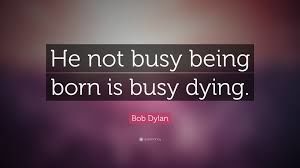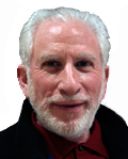Depression
Living, Dying and the Moral of Phillip Roth’s Life
What happens when purpose exits our lives?
Posted August 13, 2018
“…he not busy being born is busy dying.” – Bob Dylan

The great American novelist, Philip Roth, died at the age of 85 in May of this year, in Manhattan, where he had a home. While death visits with and without an invitation, my work as a psychiatrist and a physician has taught me that the choice to retire (or not) can shape our fate.
I consider the lives of three people in offering one moral from Mr. Roth’s life and retirement: Roth, my father, and myself. The moral, as Bob Dylan so crisply captured, is that if we let go of purpose, that propulsive life force, that the void can usher in our death.
After he wrote 31 books in 50 years, and had become the most accomplished fiction writer alive, Roth announced, in 2012, his decision to retire from writing. “As far as he knows, [Roth said], the only other writer to retire when he still had something on his fastball, so to speak, was E.M. Forster, who stopped writing in his 40s.” Roth’s first book, at the age of 27, was Goodbye, Columbus and Five Short Stories and his last was Nemesis, at 77.
When Roth hit his sixties, his productivity re-ignited, with a ferocious second wind of books, often one a year. With that literary lift and loft (which included several extraordinary works including American Pastoral (his Pulitzer Prize winner), The Human Stain, and I Married a Communist, he left other American men of letters behind—with his vast oeuvre and his unrelenting, unashamed revelations about everyday life with its tumult, yearning, contention, ambition, lust, defeat in body, soul and vocation, the endlessly meshugah and comedic world of family, especially Jewish families, and the fog of the human condition.
When Roth retired, I sensed his would not be a bucolic closing chapter. He became progressively more ill, physically compromised, often depressed, and then he died—his heart and his soul calling it quits.
My father, no Philip Roth, was a businessman, the son of immigrants from Eastern Europe. As a poor but striving family, they endured the Depression, which left my father forever feeling that tomorrow’s meal and roof over his head were uncertain. He smoked, gambled, did not drink, and built a prosperous middle-class life through a series of small businesses.
Like Philip Roth, my father had a tough demeanor, no excuses, no settling for less, no rest until the work was done. As Roth said in American Pastoral about men like his father and mine (not to mention himself), “…men for whom the most serious thing in life is to keep going despite everything…limited men, with unlimited energy…a father whose compound of ambitions, biases and beliefs is so unruffled by careful thinking that he isn’t as easy to escape from as he seems.”
My father worked and worked, beginning with a corner grocery, then a supermarket, a stationery store, and last was an office supply company. He sold the company, wanting surcease from ceaseless work and striving. He had enough money to retire, to live in South Florida with my mother, their home ablaze from the southern sun, though not that of my father’s heart and mind.
He found himself with little to do. No store to wake up to and open. No more planning the next enterprise, no more challenging his quick, if uneducated, mind. He became depressed, struggled to get from day to day, yet he kept going. Then he developed lung cancer—a past smoker, he relied on three packs a day to fuel him. He lived on a few years after the resection of a good part of his lungs, then the cancer came back with a vengeance. He passed quickly—it seemed peaceably, but maybe that was the morphine given for his pain.
I am in the years of life when both these men retired and began their downward spiral. I think about Roth and my father. I wonder, maybe their time on earth would have been longer, more fulfilled in their later years, had they kept going, despite age, infirmity, weariness.
Both men had had purpose, an inner drive to contribute, to serve in their own unique ways. To make a difference for family and community, and for Roth, a vast swatch of humanity. Leaving their calling, being an author, a businessman, snuffed out the fire within, the source and reason to be alive.
When I awake each morning, my first encounter is with the parts of my body that are wearing out, and with the collective fatigue of a life as a doctor, public servant, and family man. The sheer force of awakening ready to dive into the day that I once had is gone. But the light is there, I can see it. Open your eyes, Lloyd, let your mind fill with the simple fact that you are alive, and that today in ever so small, but appreciable ways, you can make a difference. You have a calling. Push ahead, get to work, and fight the yearning to say, ‘enough’. Because enough means the end, and I am not ready for that yet.
You see now why I can’t retire. There is still a pool of life left to be extracted from this body of carbon and water, and a mind that has not yet lost its imagination or spirit. The experience of wonder, the privilege of joining with others and contributing in whatever way may present itself, is what is at risk if I too put down my pen or not renew my medical license. See you on the subway on my way to work, and look out for my next book.




